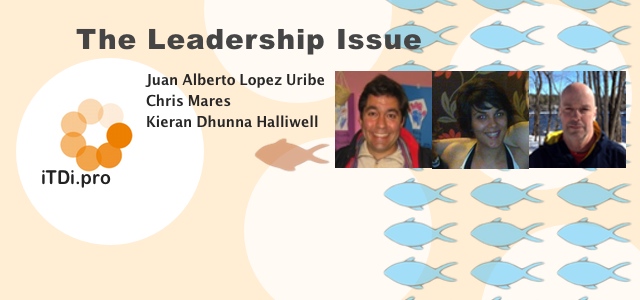
Leadership: How to Keep Your Boat Afloat …
Kieran Dhunna Halliwell
“Be not afraid of greatness; some are born great, some achieve greatness, and others have greatness thrust upon them.” – William Shakespeare
What does it mean to be ‘great’? I googled the word to see how great was defined in various dictionaries. My results told me great could mean big in number or in character. It can mean distinguished or noble. Some results suggested it could mean to be skilful, an expert or of high merit. In total, there were around twenty different meanings for the word ‘great’, which I found somewhat surprising because it’s a word often attached to leadership with little thought to what we are trying to communicate. What are we talking about when we say someone is a ‘great leader?’
I have spent a lot of time recently thinking about leadership and of Shakespeare’s quote. Are some really born great? Is it nature or nurture? How is greatness achieved and what does that actually mean? And finally, if greatness is thrust upon someone, was that individual showing signs of being great in the first place in order to be thrust into their new position? In particular, I have been thinking about whether there is a set of skills to be learned in order to be a great leader, or whether people perceived as good leaders are just naturally suited to their positions. We often talk about nature or nurture in relation to talented people and this can be applied to leadership too – is Shakespeare right that some are just born great, is there a skill-set/knowledge or trait which allows them to achieve greatness or is being a great leader a combination of these two things with a bit of being in the right place at the right time added in?
Having spent the last few months ruminating on this, I have come to the conclusion that leadership is about impact. Many people have impact on the world or others but in terms of leadership this could be considered on a sliding spectrum where any smaller impact is at the lower end of the spectrum, but still requires leadership skills and those who are experts at applying these skills are at the top end of the spectrum because they are impacting a greater amount of something.
Recently, I became a fan of the UK television series Hornblower. The series charters the rise in fortunes of Horatio Hornblower, a fictional naval midshipman in the Napoleonic wars. Throughout the series we see Hornblower develop his attitudes and values, make mistakes and face tough dilemmas which all contribute to the series finale, when he eventually rises to the position of commander. Whilst I have no intention of writing a review of Hornblower (although I obviously enjoyed it so you may too!) the character did finally settle me on what traits I currently believe a great leader has. A great leader ….
Values others / Takes their position seriously but is one of the teamà has respect of peersà does not pull rank unless the ship is about to crash!
One of the most telling moments in the series comes toward the end, when it is becoming clearer that Hornblower is set to become one of the greatest leaders. Despite being of a higher rank, Hornblower asks those who are on deck to drench him in water and give him a wash (rest assured, I’m not suggesting leaders should ask their teams to bathe them!) However, the scene demonstrates the necessity of leaders being able to move between keeping a ‘ship afloat’ and of being able to join is as one of the group. By doing a small act like this, the crew have affection for Hornblower above any of the other senior officers. Another aspect to being one of the crew is the recognition that any of those around him could potentially lead him one day – Horatio leads partly because he has key qualities but luck, connections and a steely drive contribute. Character traits are not fixed, implying others could potentially take the place of leader if they understood the role.
Hornblower does not set about to be popular or engage with people in an effort to keep them ‘on side’, but because he recognises they are as integral to the ship as he is. Without them, there would be no point in his own position. The same principles apply to education and business. A head teacher is only as good as the team they are working with and like Horatio, did not begin their career at a senior rank. If a team does not get to interact with their leader on an equal level they will find it harder to give unquestioning support professionally. Humanity connects over similarities and shared commonalities; great leaders take the time to get to know their teams rather than automatically expecting their teams should support them. By definition, relationships must be two-way.
Takes calculated risks
Horatio is a natural risk-taker. As far as leadership is concerned, this could be a detrimental quality if his personality were too reckless. He often dives into situations and acts swiftly but he only does so when someone else is at risk and there would be no consequence to anyone but himself if he got involved. Educational leaders often have to make decisions that will affect either their staff or the children in the school, which is quite a charge. The nature of progression involves an element of risk-taking; progress is the latest, the forefront, to be there an individual has to try something different or untested to be there. Great leaders consider the potential gains and losses, or benefits and detriment then make an informed decision. When something in place is working well, it can be tempting not to change anything in case the perceived recipe for success is lost, but ultimately maintaining a status quo in a world that is ever changing is a recipe for failure in itself.
An aspect of leadership that is often not discussed is fear. When important decisions or actions are your responsibility it is natural to feel fearful. Horatio often has moments when he is fearful, especially when heights are involved, but he manages the emotion and overcomes it in order to achieve success. Average leaders acknowledge they have responsibility. Great leaders do not find fear a threat.
Great leaders are also aware that choices have consequences, regardless of which one they make. They weigh up the consequences and possible outcomes, employing their skills of calculated risk simultaneously before committing to a choice.
Has integrity and a natural reflective character
One of the defining characteristics which makes Hornblower stand out from contemporaries is his integrity and growing moral compass. Throughout the series he faces challenges and dilemmas which require him to make tough choices. On occasion he is asked whether he made certain judgements or did certain actions – in effect, he is put on the spot to be accountable – and whilst sometimes having the range of emotion associated with these kinds of confrontation, he takes responsibility for his part without giving any defence or justification. For me, this is what makes a great leader. A great leader knows there are many things which influence a decision and knows they may not solely be ‘to blame’ for something, but as the saying goes they ‘choose their battles wisely’. Hornblower only ever speaks out against another if he deeply feels wronged. When focusing on success, he puts himself at the centre of any view and looks outwards; in the victories, he is associated with the glory but is quick to acknowledge it is only a victory because everyone else played their role well, and in the defeats he is quick to look at his own performance before anyone else’s. Interestingly, he comments more on a failure of strategy and then looks to who designs a strategy rather than immediately pointing a finger at any individual when things go wrong. Too often in education, I feel many leaders jump to the latter rather than the former.
Horatio is an ambitious man. By the end of the series, he has become accustomed to being promoted and realised he can get ahead quickly, spurred on by the support of those around him, particularly the support of his superior Sir Edward Pellew who has watched his career rise from the start. He has more confidence in his abilities, which lay dormant at the beginning of his career and begins to take control of situations. The majority of leaders start out just like Horatio; working their way up through ranks, taking on more and more responsibility for growing numbers of people trying to have an impact. The great leaders do not make reaching a certain destination their goal. They hope for it, but the goal itself does not become them. These leaders become the greatest because they grow on the journey, adapt, reflect, feel and engage with the ever-changing world.
These are just my thoughts on leadership. They may change over time and with future experience. We’re all learners at the end of the day, even leaders. In my opinion, poor leadership is only poor when it’s repeated and left to be continually ineffectual and great leaders are those who maintain an awareness that they, like everyone else, are merely human too at the end of the day.
Connect with Kieran and other iTDi Associates, Mentors, and Faculty by joining iTDi Community. Sign Up For A Free iTDi Account to create your profile and get immediate access to our social forums and trial lessons from our English For Teachers and Teacher Development courses.





